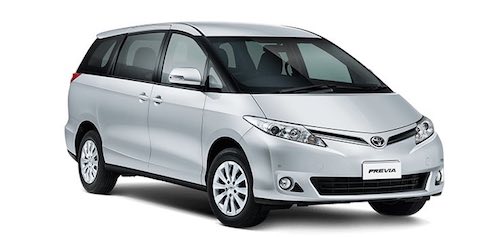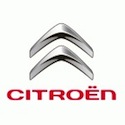All-electric Nissan
The new age of ecologically-friendly motoring is here with the arrival of the Nissan Leaf, (5 Seats) and Toyota Prius (7 Seats).
The Nissan Leaf, an all-electric vehicle, has been voted European Car of the Year for 2011. It garnered 257 points, narrowly beating runner-up, the Alfa Romeo Giulietta, which collected 248 points. With 244 points, the Meriva from Opel/Vauxhall came third.

Nissan Leaf pictured above.
The Leaf won 20 top points from judges keen to highlight the importance of launching a mass-produced electric car onto the market. This was also the first time an all-electric vehicle reached the final round of voting.
Not long ago, such cars were considered laudable but not serious options for the mass market. Today, however, motorists can choose from a wide range of alternative-fuel, hybrid and all-electric vehicles.
Until just over a decade ago, electric vehicles were seen as limited in both utility and appeal. This view has changed since the hybrid-electric Toyota Prius was launched in the US in 1997. Not only was the Prius the most fuel-efficient petrol car in America in 2009, but also it found fame as the choice of ecologically minded celebrities. The Prius has been adapted, and called the Prius Plus, it has two additional seats in the rear making it a 7 seater car.

Toyota Prius Plus pictured above.
Recent years have seen a boom in the appeal and availability of electric and other types of environmentally friendly cars. This is perhaps best highlighted by the establishment in 2003 of Tesla Motors in the Silicon Valley.
In January 2012, Tesla produced its 1,000th Roadster. The Tesla Roadster is a minimalist all-electric sports car that accelerates like a supercar. Even with this performance, Tesla Motors says the car has twice the energy efficiency of a Toyota Prius.
With a base price of US$109,000 (£70,000), the Tesla Roadster is not exactly cheap, mass-market motoring. The Roadster does, however, play an important role both in the development of the new technologies needed for electric vehicles and in boosting public awareness of the potential and the application of these technologies. Meanwhile, General Motors is banking on its Chevrolet Volt plug-in hybrid-electric saloon to help lead the recovery of the recently-bankrupt automaker. In the US, Chevrolet is only awaiting ratings labels from the Environmental Protection Agency (EPA) before shipments of the car start in 2011.
When it goes on sale, the Volt is expected to be rated at a combined composite EPA fuel economy rating of 60mpg. This will better that of the Toyota Prius. Pricing, too, should be competitive, once government tax credits are taken into account. The Volt will be the first mainstream plug-in hybrid car sold in the US.
The Volt will also be sold in other markets around the world under the Holden, Vauxhall and Opel brands. Tesla Motors, too, is busy developing its own family saloon though this will be all-electric and is likely to be priced notably higher than the Nissan Leaf, the Chevrolet Volt or the Toyota Prius.
Well-known performance car brands, too, are keen to give drivers green-motoring options and have been busy developing technologies that combine low-emissions with high-performance. Famous German automaker Porsche has been competing in motorsports with its 911 GT3 R Hybrid racer.
This special competition version of the historic 911 sports coupe design uses advanced mechanical flywheel technology to store energy captured under braking. Under acceleration, this energy is then released as electrical power for two electric motors that provide a turbocharger-like boost of acceleration.
Whether you’re keen on helping the planet or just want to enjoy the visceral thrills of a modern performance car, it looks like concern about the environment should give you what you need. For both speed freaks and tree-huggers, and those needing seven seaters, next year could be a landmark in the effective progress of green motoring.

 Audi 7-Seater
Audi 7-Seater BMW 7‐Seaters
BMW 7‐Seaters Chevrolet MPVs
Chevrolet MPVs Chrysler MPVs
Chrysler MPVs Citroen MPVs
Citroen MPVs Fiat 7-Seaters
Fiat 7-Seaters Ford 7-Seaters
Ford 7-Seaters Honda MPVs
Honda MPVs Hyundai MPVs
Hyundai MPVs Jeep 7-Seaters
Jeep 7-Seaters Kia 7-Seaters
Kia 7-Seaters Land Rover
Land Rover Mazda MPVs
Mazda MPVs Mercedes MPVs
Mercedes MPVs Mitsubishi
Mitsubishi Nissan
Nissan  Peugeot
Peugeot  Renault
Renault  SEAT 7‐Seaters
SEAT 7‐Seaters Ssangyong
Ssangyong  Toyota
Toyota  Vauxhall MPVs
Vauxhall MPVs Volkswagen
Volkswagen Volvo MPV
Volvo MPV All Manufacturers
All Manufacturers